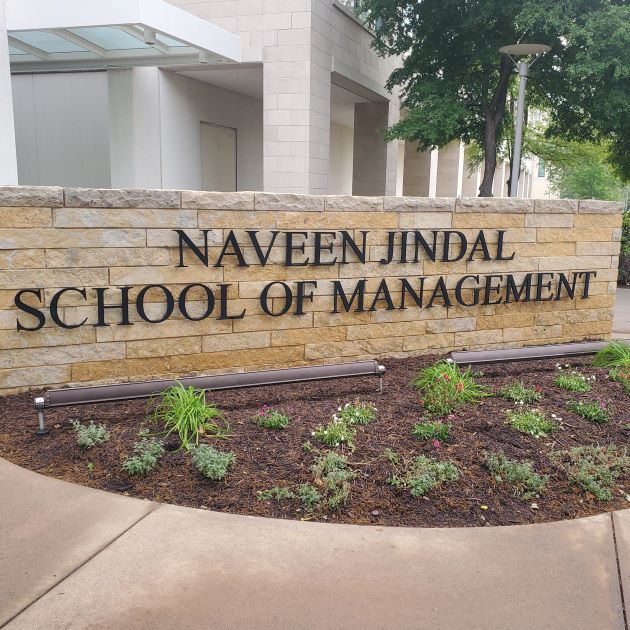A recent presentation at the Naveen Jindal School of Management offered a provocative look at whether academic management research is relevant to real-world business and societal issues.

Dr. Serguei Netessine, professor of operations, information and decisions and PhD coordinator at the University of Pennsylvania’s Wharton School of Business, spoke at the plenary session of the 2018 Manufacturing and Service Operations Management Conference on July 2. In his talk, “A Vision of Responsible Research in Business and Management,” he warned of the pitfalls that could befall irrelevant scholarly research and offered solutions to ensure that it does not happen.
“As you all know, climbing healthcare costs are in the focus of all policymakers now,” he said. “But, believe it or not, medical care costs are not growing as high as educational costs.”
Policymakers soon will turn their focus to higher education, he said, and the cost differences between research and non-research universities will be “easy to see.” With it, there will be increased attempts to cut tenure, stop grant funding, tax endowments and end the not-for-profit statuses of universities altogether.
Netessine warned that researchers should be wary of pursuing scholarly work that serves only to advance their own careers but makes little difference to society. He cautioned against “chasing our publication numbers to get tenure instead of thinking about social impact.”
The solution, Netessine said, lies in doing research that is responsible to both science and society. Scientifically responsible business research requires that it be reliable, repeatable and credible. Responsibility to society, he said, necessitates producing knowledge that leads to better business, a better world or both.

“Professor Netessine used hyperbole in his presentation to emphasize the need for academia to maintain awareness of the pressure that is increasingly building on our institutions to stay relevant,” said Dr. Elena Katok, a Jindal School Ashbel Smith Professor of Operations Management who co-chaired the MSOM Conference planning committee.
In her roles as co-director of the Center and Laboratory for Behavioral Operations and Economics and PhD area coordinator, Operations Management at the Jindal School, Katok sees relevant work being done every day and is confident that the work being done at the Jindal School and other research universities is beneficial to society.
“Most management schools are involved in doing practical, collaborative work that benefits practice,” she said. “Most of them work closely with businesses to help them solve real problems.”
The concerns Netessine laid out in his talk stem from ideas put forth by Responsible Research for Business and Management, a virtual organization of scholars, academic leaders and supporters from across the globe who endorse the concept of “inspiring, encouraging, and supporting credible and useful research in the business and management disciplines,” as its website states.
“I think it’s a good vision, and I think many business schools, including JSOM, already do this kind of relevant, helpful research that benefits society,” Katok said.





